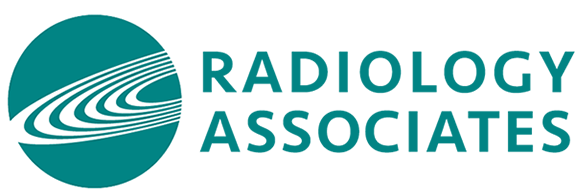Heart disease is the number one cause of death among Americans, often producing no or very subtle symptoms before heart attack strikes. That’s why many conditions and circumstances may warrant an echocardiogram to assess the condition of the heart and its important structures.
If your doctor or clinician has recommended that you have an echocardiogram, you doubtless have questions about what it is and what to expect during your visit. This article covers the basics of echocardiography, so you have a basic understanding of the purpose and experience of this important heart imaging exam.
What Is an Echocardiogram?
An echocardiogram (also known as echocardiography or cardiac ultrasound) is a radiation-free test that utilizes high-frequency sound waves to produce detailed pictures of the heart. During this safe, non-invasive exam, a highly trained sonographer swabs an ultrasound wand – called a transducer – across your chest, delivering sound waves that bounce back (or echo) to sensors within the wand. The information is sent to a computer to create two- or three-dimensional images of your beating heart, as well as its valves and other related structures.
An echo test can help detail important information about your heart, including:
Its size, shape, movement and pumping strength
Your heart valves’ function, including any leakage, narrowing or blockage
Abnormalities in the pericardium (outer lining), chambers and blood vessels
An echocardiogram is 100% safe, completely painless and non-invasive, and requires no special preparation. To receive the test, you simply lie down on a padded table while the sonographer applies a clear conduction gel to your skin and passes the wand back and forth over your chest. You may be asked to hold your breath for a few seconds while images are being captured. If you have ever taken part in a sonogram (fetal ultrasound), then you’re familiar with the process – it is the same type of exam. An echo test typically takes less than an hour, so you can be on your way quickly.
Who Might Need an Echocardiogram?
Your primary care clinician or cardiologist will order an echo test if you are experiencing symptoms of heart disease, have a personal or family history of heart disease that requires monitoring, have a heart murmur, or are considered at elevated risk. By checking your heart’s pumping power and cardiac valves’ strength and health, your radiologist and referring physician can diagnose heart disease and initiate treatment if needed.
10 Abnormalities That Can Be Discovered Using Echocardiography
Irregular or damaged heart valves
Heart murmur
Muscle damage from a heart attack
Weakening in the heart’s pumping power
Pericarditis – a swelling or irritation of the pericardium, the membrane around the heart
Pericardial effusion – excess fluid in the sac around the heart
Endocarditis – a dangerous inflammation of the inner lining of the chambers and valves
Pulmonary hypertension – an elevation in blood pressure of the vessels leading from the heart to the lungs
Presence or origin of a blood clot post stroke or TIA
A congenital heart disease
While an echo test can reveal a wide range of abnormalities, many are minor and may require only simple monitoring. Others, however, can be serious. Obviously, any problems with the heart or its structures should be caught as early as possible, before they can develop the potential to become debilitating or life-threatening.
Your referring clinician will discuss your results with you and provide any needed recommendations.
Echocardiogram Services at Radiology Associates
If you have a personal or family history of heart disease, talk to your healthcare provider about your risk and any needed steps to protect your health and vitality.
If your clinician recommends an echocardiogram to assess your heart health, know that you have a choice of imaging providers to perform this life-saving exam. Since 1958, Radiology Associates has remained one of eastern Central Florida’s diagnostic and interventional treatment leaders, with caring, fellowship-trained subspecializing radiologists utilizing the latest state-of-the-art technologies, to discover disease as early as possible, so effective treatment can begin.
For more information or to schedule an appointment, call Radiology Associates at 386-274-6000. With 8 locations, experienced and dedicated care is near you.

